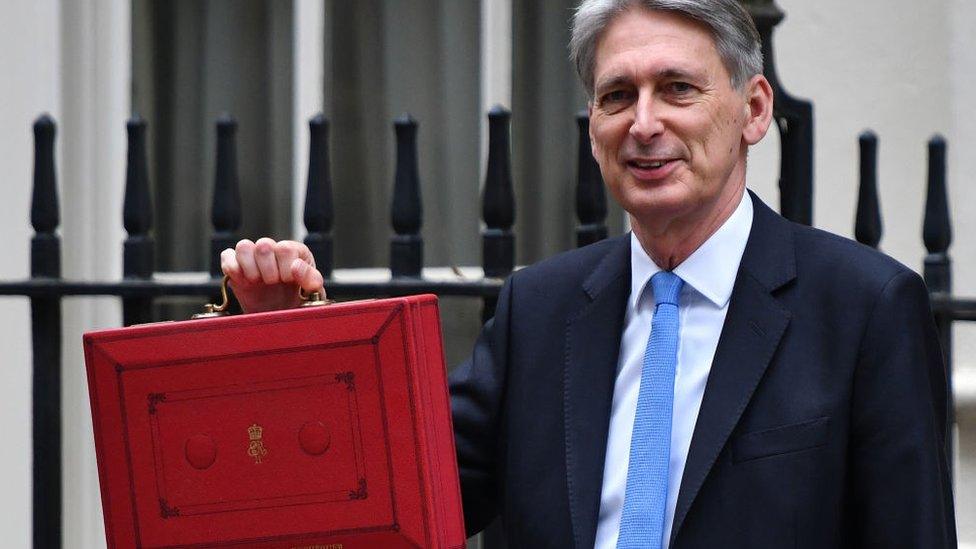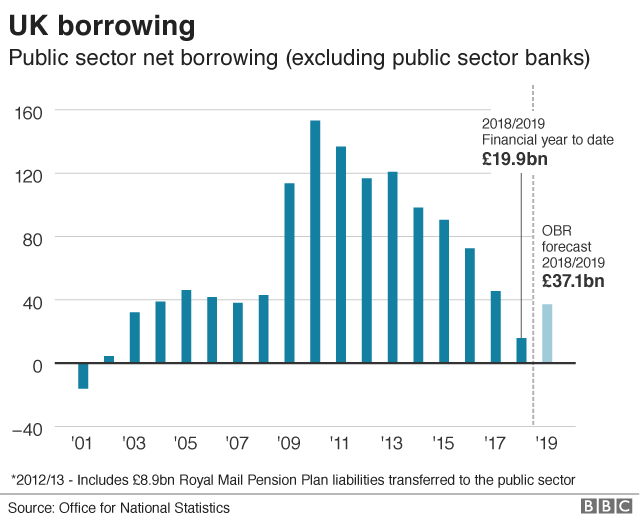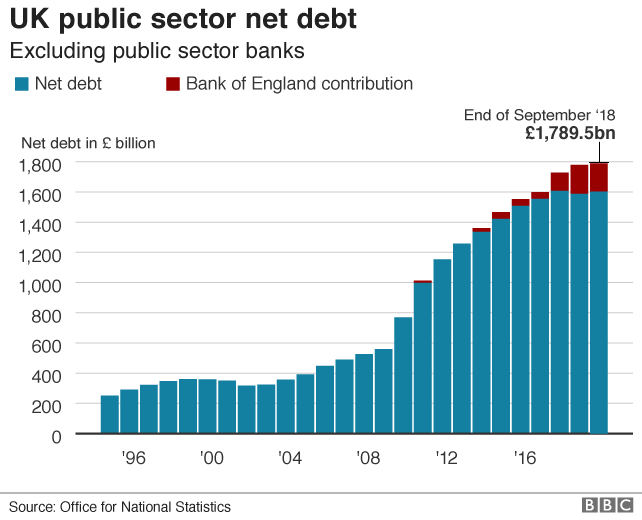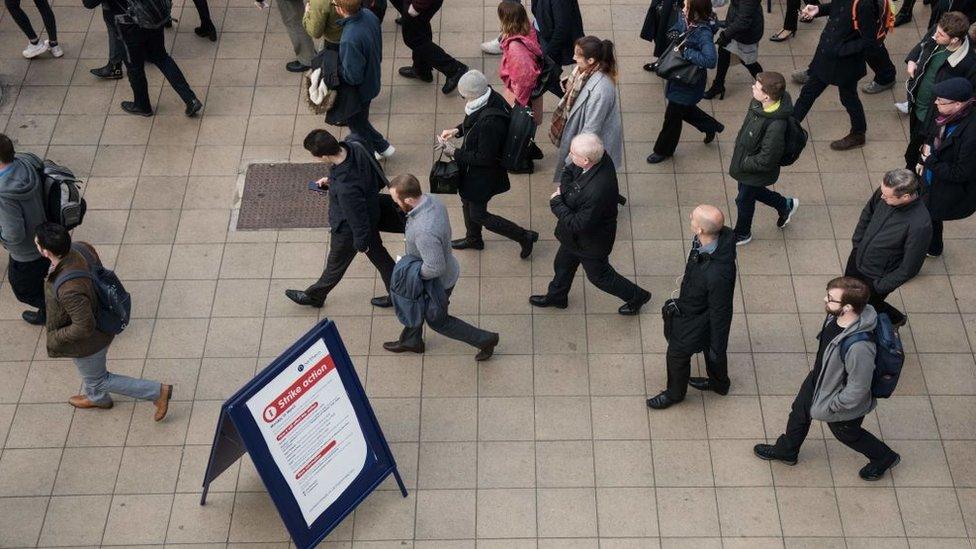Government borrowing in September lowest since 2007
- Published

Chancellor Philip Hammond will present his Budget later this month
Government borrowing fell by more than expected last month, to £4.1bn from £4.9bn a year earlier.
It was the lowest borrowing figure for the month of September since 2007, the Office for National Statistics said., external
Borrowing for the year to date is 35% lower at £19.9bn, potentially giving Chancellor Philip Hammond room for manoeuvre in the upcoming Budget on 29 October.
The ONS said it was the lowest year-to-date total since 2002.
Economists had expected a September borrowing figure of £4.5bn.
Public sector net debt, excluding public sector banks, now stands at £1,789.5bn, equivalent to 84.3% of GDP.
That is £3.4bn higher than a year earlier, but lower as a percentage of GDP than in 2017, when it was 86.7%.

Samuel Tombs, chief UK economist at Pantheon Macroeconomics, said the improved public finances meant the chancellor could afford plans for higher spending on the NHS "without raising other taxes or cutting spending in other departments more aggressively over the next couple of years".
"Real-terms increases in NHS spending mean other departments will have to endure further cuts, but Mr Hammond needn't intensify them.
"That said, the prime minister is using the promise of higher spending as a bargaining chip to corral her MPs into supporting her Brexit plan," he added.
This made it likely that the Budget would be a "holding statement", he said, with more decisive measures delayed until next year.

Yael Selfin, chief economist at KPMG UK, said the government had to work out how to make the best use of the available resources.
"One option could be to refrain from making big spending commitments now - after all, the Brexit deadline in March next year could still come as a shock if things do not go to plan. An extra £16.6bn could give the chancellor some room to respond to the potential challenges."
She said that apart from health, other areas such as social care, prisons and local government all showed a "dire need" for more funds.
She added: "However, the extra pot is unlikely to be sufficient for all these demands, and the chancellor will ultimately need to opt for either higher debt or higher taxes in order to meet these."
- Published17 October 2018

- Published16 October 2018

- Published16 October 2018